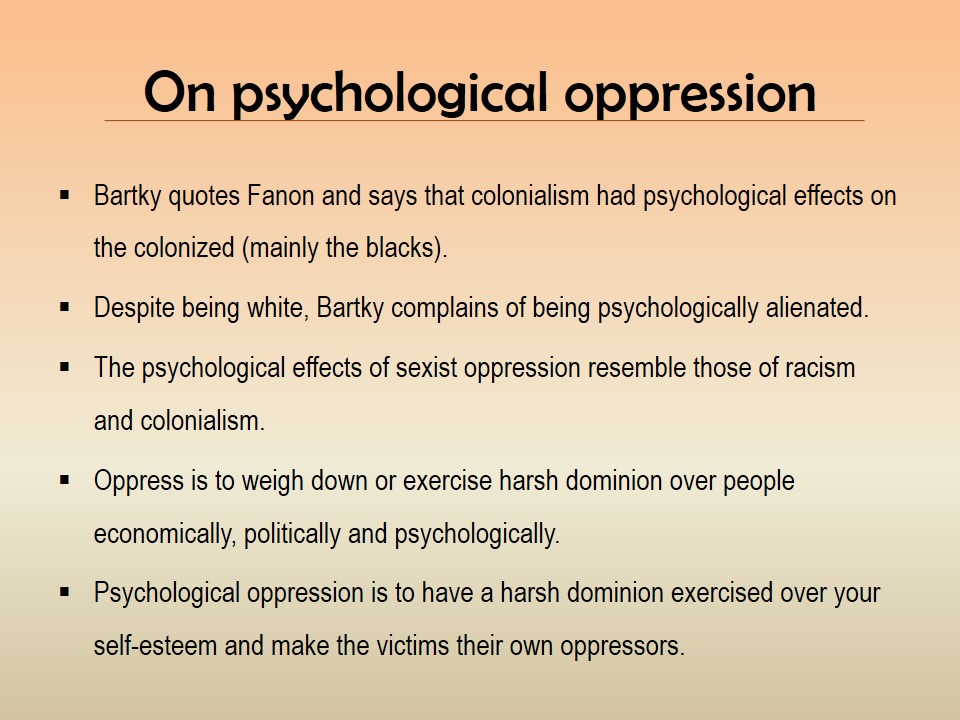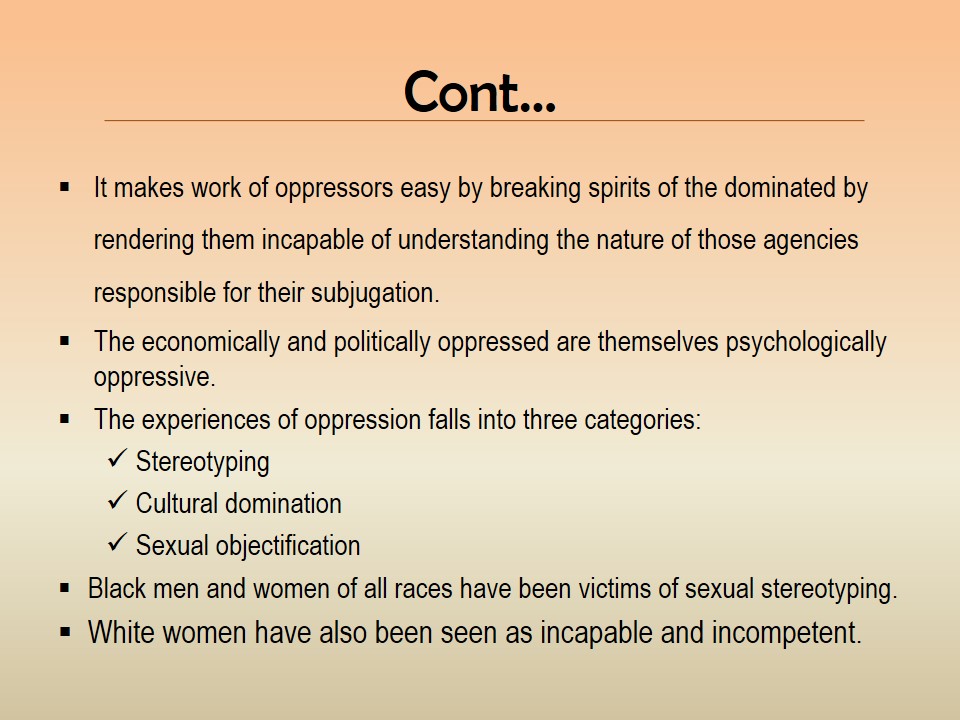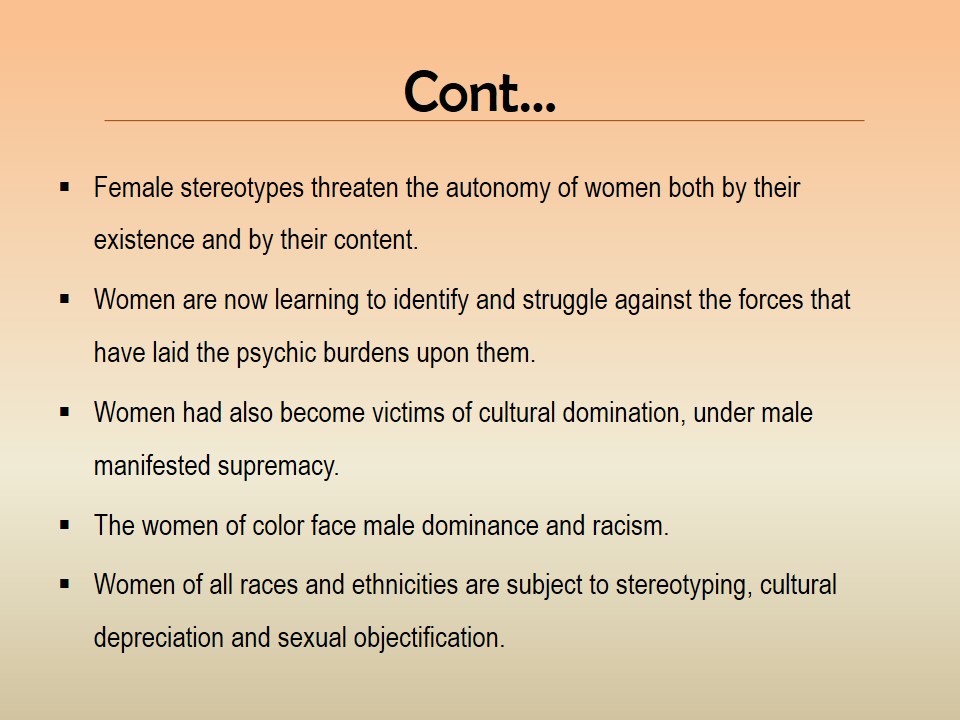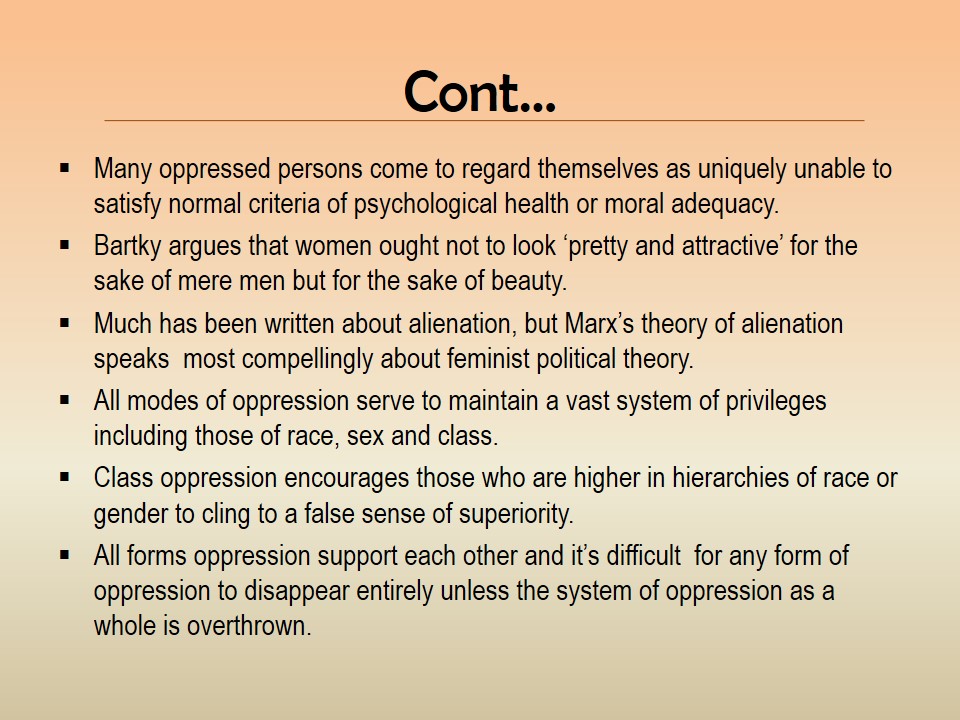Introduction
- Biographical information of Sandra Bartky:
- She is a professor of Philosophy at the University of Illinois at Chicago.
- In 1997, she received an honorary degree, Doctor of Humanities from New England College.
- Her article, “On Psychological Oppression”.
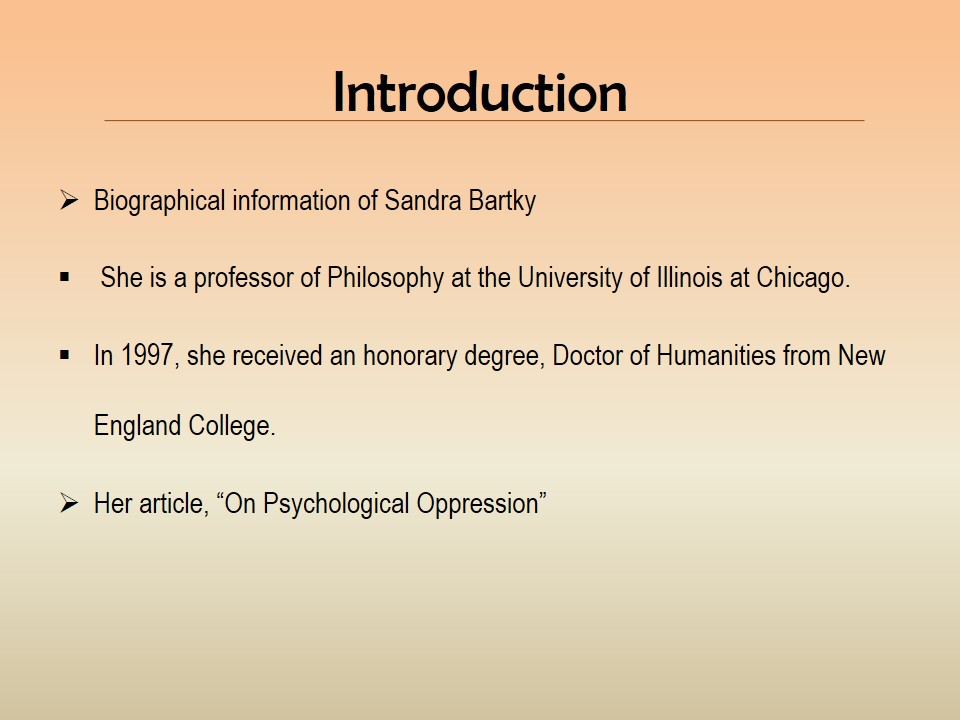
On psychological oppression
- Bartky quotes Fanon and says that colonialism had psychological effects on the colonized (mainly the blacks).
- Despite being white, Bartky complains of being psychologically alienated.
- The psychological effects of sexist oppression resemble those of racism and colonialism.
- Oppress is to weigh down or exercise harsh dominion over people economically, politically and psychologically.
- Psychological oppression is to have a harsh dominion exercised over your self-esteem and make the victims their own oppressors.
- It makes work of oppressors easy by breaking spirits of the dominated by rendering them incapable of understanding the nature of those agencies responsible for their subjugation.
- The economically and politically oppressed are themselves psychologically oppressive.
- The experiences of oppression falls into three categories:
- Stereotyping;
- Cultural domination;
- Sexual objectification.
- Black men and women of all races have been victims of sexual stereotyping.
- White women have also been seen as incapable and incompetent.
- Female stereotypes threaten the autonomy of women both by their existence and by their content.
- Women are now learning to identify and struggle against the forces that have laid the psychic burdens upon them.
- Women had also become victims of cultural domination, under male manifested supremacy.
- The women of color face male dominance and racism.
- Women of all races and ethnicities are subject to stereotyping, cultural depreciation and sexual objectification.
- Many oppressed persons come to regard themselves as uniquely unable to satisfy normal criteria of psychological health or moral adequacy.
- Bartky argues that women ought not to look ‘pretty and attractive’ for the sake of mere men but for the sake of beauty.
- Much has been written about alienation, but Marx’s theory of alienation speaks most compellingly about feminist political theory.
- All modes of oppression serve to maintain a vast system of privileges including those of race, sex and class.
- Class oppression encourages those who are higher in hierarchies of race or gender to cling to a false sense of superiority.
- All forms oppression support each other and it’s difficult for any form of oppression to disappear entirely unless the system of oppression as a whole is overthrown.
